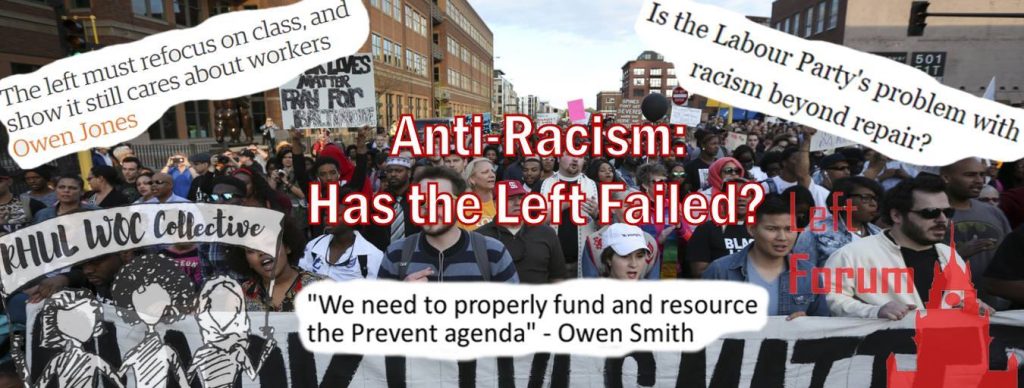
On Thursday the 24 November, Royal Holloway held a public discussion on the failure of left-wing politics in the fight against racism, with the title “Anti-racism: has the Left Failed?”
Hosted by the Women of Colour Collective and the Left Forum, the two-hour talk featured representatives of both societies, accompanied by esteemed journalist, Wail Qasim, and NUS Black Students’ Officer, Aadam Muuse. There were five panellists in total. The event comes after the British decision to leave the EU in June, as well as the surprise election of Donald Trump in the United States earlier in the month.
Both decisions have been perceived as movements of the traditional left towards more right-wing politics, especially concerning immigration and issues of race. Accordingly, the chairman introduced the discussion with the words: “The left has slipped towards the racism of the far right”. He also noted the dominance of “white voices” in left-wing politics.
The talk began with the broad topic of the definition of racism. All panelists emphasised the role of power in racism, with Muuse noting that the issue is “not just prejudice on its own”. A representative of the Women of Colour Collective, agreed, calling racism “prejudice plus power”. She cited “mass deportations” as a current example of this dynamic. Emphasis was also placed on the institutionally and psychologically entrenched nature of racism. “There are subconscious ways of being racist… it is difficult to not internalise it” noted a representative of the Left Forum. She noted the impact of “subconscious bias” in driving the implicit entrenchment of racism in society.
The talk soon moved onto the title topic, and the perceived shortcomings of the left in fighting racism were soon made explicit. Wail Qasim, a journalist specialising in the topic of race, accused the Labour Party of “pacifying the struggle against racism”, and claimed that such actions had led to the “death of anti-racism on the streets”. Another representative of the WOC Collective, elaborated, stating that people of colour don’t fit into the left-wing conception of class as they weren’t historically seen as citizens. This instigated a wider discussion on the exclusivity of class analysis as the impetus behind left-wing movements. All panelists argued that the focus on class left out people of colour, hiding their specific struggles from being addressed by the left. However, it was agreed that capitalism, and its rooting of the western social system, was in large part to blame for racism. One panelist, from the Left Forum appealed to the historical abuses of colonialism as evidence of capitalism’s inherent racism: “capitalism was built on the mass exploitation of black people”. And Qasim described how that same dynamic endured today, noting the culpability of the state and the rule of law in entrenching and legitimising racism.
The topic then widened to the failures of progressive movements in general. In particular, there was a great deal of criticism directed towards white feminism and its failure to address, like the labour movement, the specific struggles of women of colour. They spoke of a “double glass ceiling” for women of colour, and widened the criticism by noting feminism’s lack of inclusivity for self-identifying women and disabled women.
However, more close to home was the discussion on racism at universities, and it was here that opinions were most emotive. Muuse bemoaned the enduring glorification of colonial figures like Cecil Rhodes, referencing a controversial campaign to remove a statue of the businessman and politician at Oxford University. He also noted the threat of the far right at Royal Holloway. This comes after a protest by the Racial Volunteer Force at the university in October. The demonstration featured ‘White Pride’ flags, and counter-protesting students were called Zionists. The RVF have another demonstration planned in Egham.
The panel also discussed the ‘Prevent’ campaign, where workers at universities are expected to report student behaviour that might be symptomatic of radicalisation. They criticised its vague criteria and its flagrant adoption of racial profiling.
The discussion finished with an impassioned collective defence of safe space policy.
Thanks go to the WOC Collective and Left Forum for hosting as well as the panelists who took part.
